Pichayoot Ouppaphan
Future You: A Conversation with an AI-Generated Future Self Reduces Anxiety, Negative Emotions, and Increases Future Self-Continuity
May 21, 2024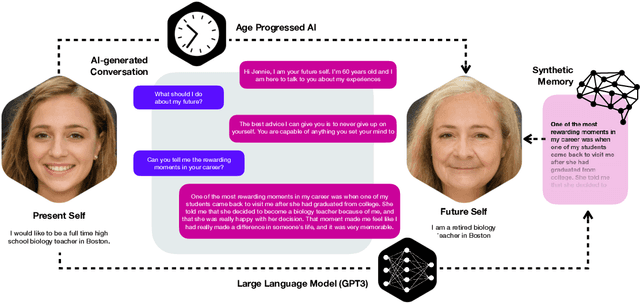
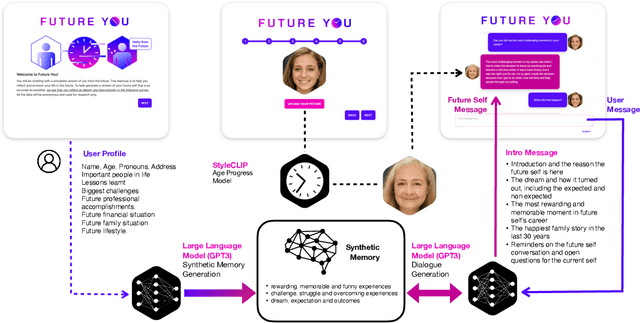
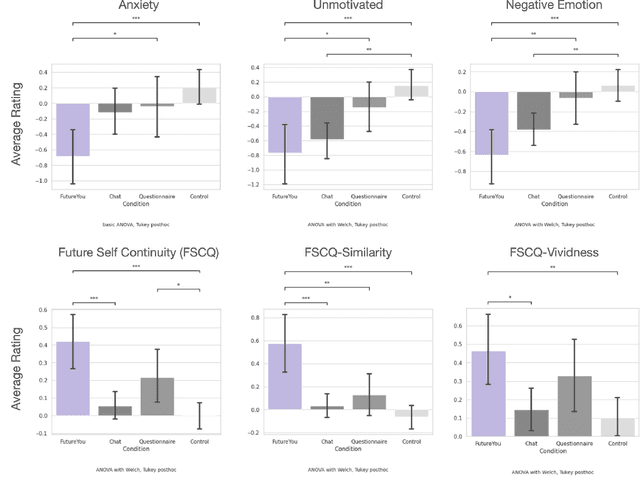

Abstract:We introduce "Future You," an interactive, brief, single-session, digital chat intervention designed to improve future self-continuity--the degree of connection an individual feels with a temporally distant future self--a characteristic that is positively related to mental health and wellbeing. Our system allows users to chat with a relatable yet AI-powered virtual version of their future selves that is tuned to their future goals and personal qualities. To make the conversation realistic, the system generates a "synthetic memory"--a unique backstory for each user--that creates a throughline between the user's present age (between 18-30) and their life at age 60. The "Future You" character also adopts the persona of an age-progressed image of the user's present self. After a brief interaction with the "Future You" character, users reported decreased anxiety, and increased future self-continuity. This is the first study successfully demonstrating the use of personalized AI-generated characters to improve users' future self-continuity and wellbeing.
MetaSleepLearner: Fast Adaptation of Bio-signals-Based Sleep Stage Classifier to New Individual Subject Using Meta-Learning
Apr 14, 2020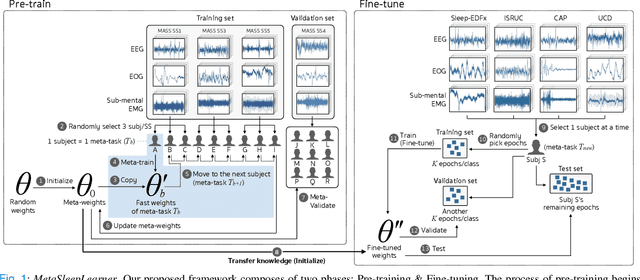
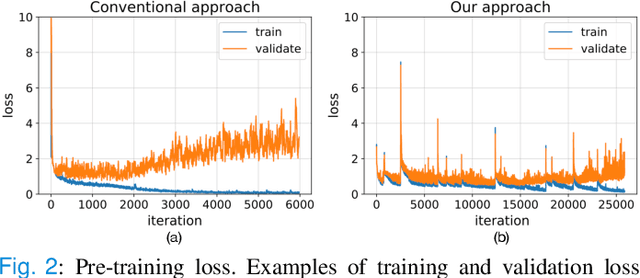
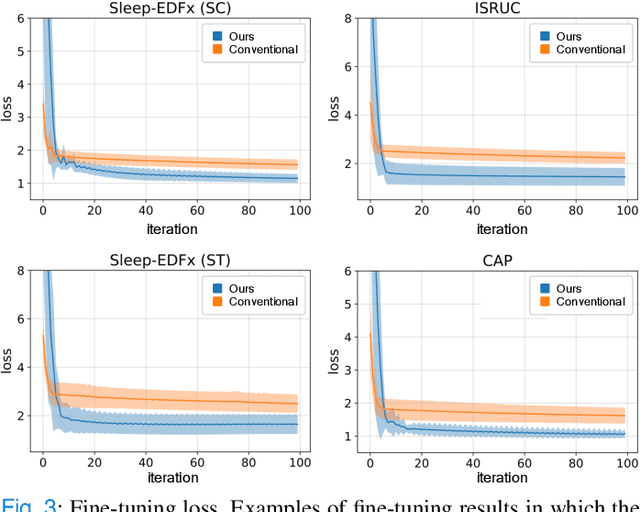

Abstract:Objective: Identifying bio-signals based-sleep stages requires time-consuming and tedious labor of skilled clinicians. Deep learning approaches have been introduced in order to challenge the automatic sleep stage classification conundrum. However, disadvantages can be posed in replacing the clinicians with the automatic system. Thus, we aim to develop a framework, capable of assisting the clinicians and lessening the workload. Methods: We proposed the transfer learning framework entitled MetaSleepLearner, using a Model Agnostic Meta-Learning (MAML), in order to transfer the acquired sleep staging knowledge from a large dataset to new individual subject. The capability of MAML was elicited for this task by allowing clinicians to label for a few samples and let the rest be handled by the system. Layer-wise Relevance Propagation (LRP) was also applied to understand the learning course of our approach. Results: In all acquired datasets, in comparison to the conventional approach, MetaSleepLearner achieved a range of 6.15 % to 12.12 % improvement with statistical difference in the mean of both approaches. The illustration of the model interpretation after the adaptation to each subject also confirmed that the performance was directed towards reasonable learning. Conclusion: MetaSleepLearner outperformed the conventional approach as a result from the fine-tuning using the recordings of both healthy subjects and patients. Significance: This is the first paper that investigated a non-conventional pre-training method, MAML, in this task, resulting in a framework for human-machine collaboration in sleep stage classification, easing the burden of the clinicians in labelling the sleep stages through only several epochs rather than an entire recording.
 Add to Chrome
Add to Chrome Add to Firefox
Add to Firefox Add to Edge
Add to Edge